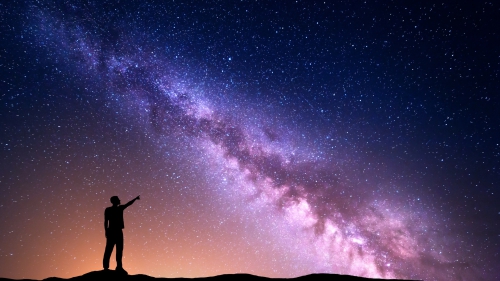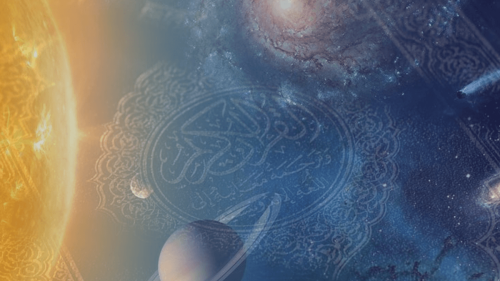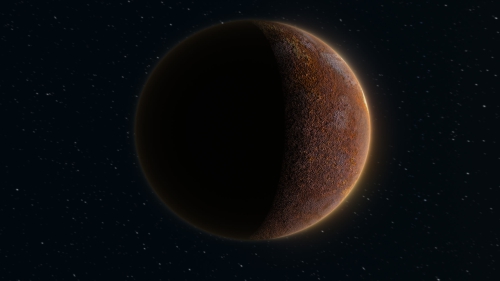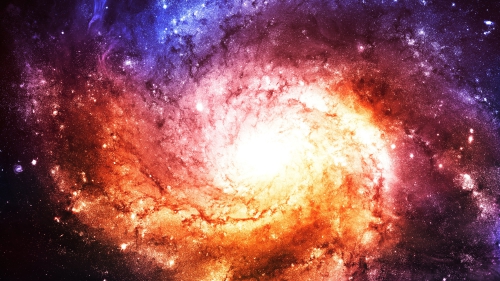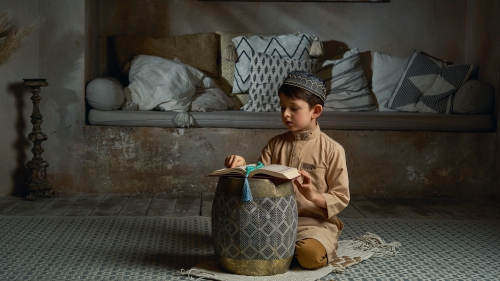Arab scholars interpreted hieroglyphics 1,000 years earlier than thought

Western scholars were not the first to decipher the ancient language of the pharaohs, according to a book that was published by a University College London researcher.
Dr Okasha El Daly of UCL's Institute of Archaeology revealed that Arabic scholars not only took a keen interest in ancient Egypt but also correctly interpreted hieroglyphics in the ninth century AD - almost 1,000 years earlier than previously thought.
It has long been thought that Jean-Francois Champollion was the first person to crack hieroglyphics in 1822 using newly discovered Egyptian antiquities such as the Rosetta stone. But fresh analysis of manuscripts tucked away in long forgotten collections scattered across the globe prove that Arabic scholars got there first.
Dr Okasha El Daly, of UCL's Institute of Archaeology, explains:
"For two and a half centuries the study of Egyptology has been dominated by a Euro-centric view, which has virtually ignored over a thousand years of Arabic scholarship and enquiry encouraged by Islam.
"Prior to Napoleonic times little was known in the West about the ancient civilization of Egypt except what had been recorded in the Bible. It was assumed that the world of the pharaohs had long since been forgotten by Egyptians, who were thought to have been incorporated into the expanding Islamic world by the seventh century.
"But this overhasty conclusion ignores the vast contribution of medieval Arabic scholars and others between the seventh and 16th centuries. In reality a huge corpus of medieval writing by both scholars and ordinary people exists that dates from long before the earliest European Renaissance. Analysis reveals that not only did Moslems have a deep interest in the study of Ancient Egypt, they could also correctly decipher hieroglyphic script."
Following the Roman invasion of Egypt in 30 BC the use of hieroglyphics began to die out with the last known writing in the fifth century AD.
While Western medieval commentators believed that hieroglyphics were symbols each representing a single concept Dr El Daly has shown that Arab scholars grasped the fundamental principle that hieroglyphics could represent sounds as well as ideas.
Using his unique expertise in both Egyptology and medieval Arabic writers, Dr El Daly began a seven year investigation of Arabic writing on ancient Egypt.
"The manuscripts were scattered worldwide in private as well as public collections and were mostly not catalogued. Even when they were, they were often wrongly classified so I had to go through each one individually - it is not like researching in modern books with an index which you can check for relevant information," says Dr El Daly.
"A specialist in only Arabic or Islamic studies reading these manuscripts would fail to grasp their significance to Egyptology. Conversely Egyptologists think that Arabs and Moslems had nothing useful to say about ancient Egypt, so there wasn't any need to look at manuscripts that were mainly the domain of scholars within the disciplines of Arabic/Oriental studies."
The breakthrough in Dr El Daly's research came from analysis of the work of Abu Bakr Ahmad Ibn Wahshiyah, a ninth century alchemist. Ibn Wahshiyah's work on ancient writing systems showed that he was able to correctly decipher many hieroglyphic signs. Being an alchemist not a linguist, his primary interest was to identify the phonetic value and meaning of hieroglyphic signs with the aim of accessing the ancient Egyptian scientific knowledge inscribed in hieroglyphs.
"By comparing Ibn Wahshiyah's conclusions with those in current books on Egyptian Language, I was able to assess his accuracy in understanding hieroglyphic signs," says Dr El Daly.
"In particular I looked at the Egyptian Grammar of Sir Alan Gardiner which has a sign list at the end, it revealed that Ibn Wahshiyah understood perfectly well the nature of Egyptian hieroglyphs."
Dr El Daly added: "Western culture misinterprets Islam because we think teaching before the Quran is shunned, which isn't the case. They valued history and assumed that Egypt was a land of science and wisdom and as such they wanted to learn their language to have access to such vast knowledge.
"Critically they did not, unlike the West, write history to fit with the religious ideas of the time, which makes their accounts more reliable. They were also keen on the universality of human history based on the unity of the origin of human beings and the diversity of their appearance and languages. Furthermore, there are likely to be many hidden manuscripts dotted round the world that could make a significant contribution to our understanding of the ancient world.
Adapted from materials provided by University College London published by ScienceDaily
Topics: Islam And Science Values: Contentment
Views: 12334
Related Suggestions
We are doing our best but the MEDIA is theirs
I'm happy to see that you admit Muslims had glorious past. Now you should see that it was a time when Muslims were governed more by Islam. Second, during the last couple of centuries Muslim lands were conquered, occupied and there were delibrate efforts to destroy their culture and advancement. Even the medium by which they were taught and communicated was replaced by foreign languages. This will have its own effect. When the dummy Muslim leaders will be replaced the results will follow.
But you have a good point which I agree, instead of being lost in the past glory, Muslims should work on the present realities.
Just to ask you a counter question, what is that your race or religion contributed to the modern world?
So the Arab nations these days underfund R&D, it is not then surprising that the discoveries are few. Africa also underfunds R&D, hardly anything comes out of there either, but I'm always interested in the historical findings of their past golden ages, because it is so unexpected and enlightening. Also there are discoveries made by Muslims, albeit those in foreign universities - they are just presented as discoveries, not 'discoveries by Muslims'. Clearly you do not read science publications, but I am a science professional and do know of the existence of such research findings just from my recreational reading.
What is recent contributions of muslims / Arabs in any subject, scientific or non-scientific.
The world does not stay static; it progresses into the future.











